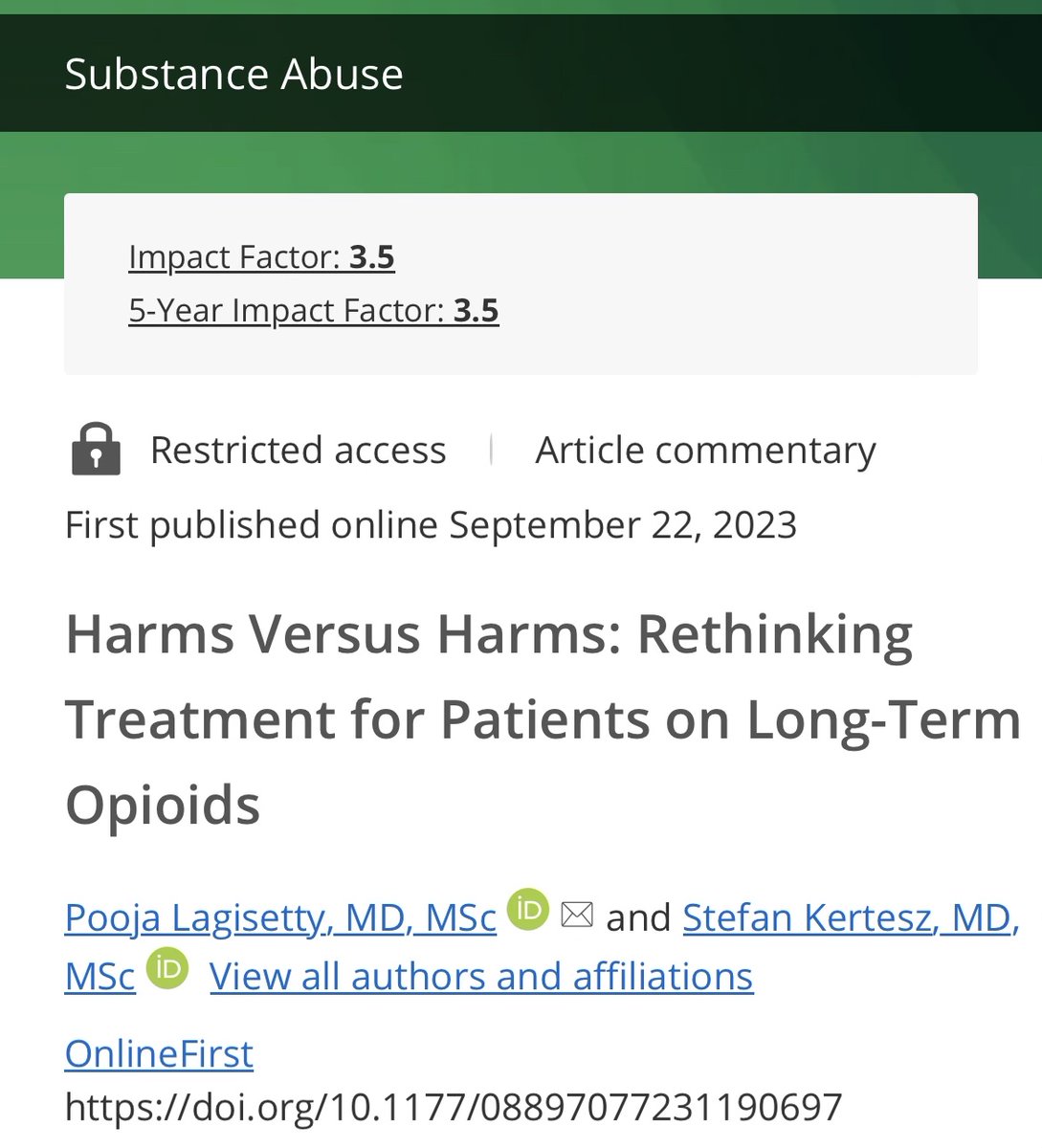@Jinxthejjinx @ChadDKollas @OregonAdvocate @PainMedJournal @LabGirl_Chloe @supportprop 1/I see this paper as direct, and not one that is terribly supportive of tapering policies (and it's good to report this): it's clear from this report that taper often fails, and that switch to buprenorphine helps some, and at least as often fails with others.
@Jinxthejjinx @ChadDKollas @OregonAdvocate @PainMedJournal @LabGirl_Chloe @supportprop 2/Here, in the paper we see that when high dose patients are referred, 36% leave before or after taper initiation. Wait for the pain results, next 

@Jinxthejjinx @ChadDKollas @OregonAdvocate @PainMedJournal @LabGirl_Chloe @supportprop 3/Here it says that among the subset of 89 who got all the way below 90 MME, the majority (52%) had ⬆️ of pain, but 24% had no change and 24% had ⬇️ of pain. This means that taper may help some pain, but more often it does the opposite. That's the data. 

@Jinxthejjinx @ChadDKollas @OregonAdvocate @PainMedJournal @LabGirl_Chloe @supportprop 4/There was a group that switched to buprenorphine. Please note, I personally have patients where that switch was helpful, and others who needed to go back. This paper finds that among 43 who switched, 18 had ⬆️pain, 4 had no change, and 21 had ⬇️pain. 

@Jinxthejjinx @ChadDKollas @OregonAdvocate @PainMedJournal @LabGirl_Chloe @supportprop 5/Here's my take: the authors "believe" in the program they offer. They assert (in the discussion, which is where authors do speculate) that what they did resulted in safety and prevented redistribution of medication in the community.
They have no evidence for those speculations
They have no evidence for those speculations

@Jinxthejjinx @ChadDKollas @OregonAdvocate @PainMedJournal @LabGirl_Chloe @supportprop 6/This study and others show us that policies to broadly incentivize opioid dose ⬇️on high-dose patients are not justifiable, but certainly an attempt at taper is something patients may seek to choose. Such findings are:
a)some feel better
b)others feel worse
No panacea
a)some feel better
b)others feel worse
No panacea
@Jinxthejjinx @ChadDKollas @OregonAdvocate @PainMedJournal @LabGirl_Chloe @supportprop 7/In terms of evidence of harm, we have enough large databases to justify concern.
We must assess the actual deaths.
Doing that work is how we learn to prevent them, and honor/acknowledge the families that have lost loved ones.
And my team is doing that under #CSIOPIOIDs

We must assess the actual deaths.
Doing that work is how we learn to prevent them, and honor/acknowledge the families that have lost loved ones.
And my team is doing that under #CSIOPIOIDs


@Jinxthejjinx @ChadDKollas @OregonAdvocate @PainMedJournal @LabGirl_Chloe @supportprop 8/I want to separate research from advocacy here. From the start, as soon as I saw some patients harmed , I began advocating. Injuries to patients are ethically unacceptable. But even there I stick to what I see, and what evidence can show. Stick to truth, always.
@Jinxthejjinx @ChadDKollas @OregonAdvocate @PainMedJournal @LabGirl_Chloe @supportprop 9/The blowback I faced, just sticking to the facts and the science as I know it, was fierce & a bit scary. One day we can explore that, but not now. The next crucial step is to learn more, so we can speak with more clarity about what is happening to patients and families, now
• • •
Missing some Tweet in this thread? You can try to
force a refresh

















